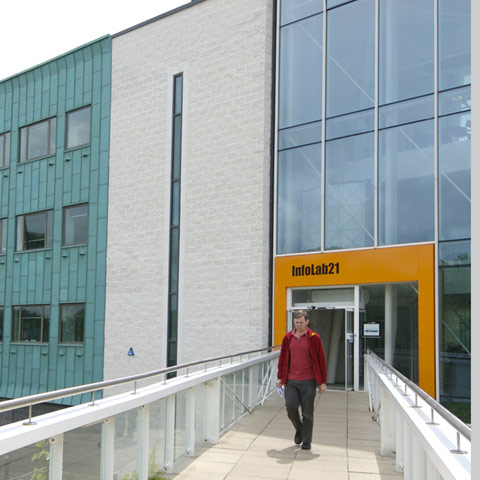Lancaster pioneers smart systems which learn as they go
11/08/2012 00:00:00

And computer scientists at Lancaster University are leading research which is enabling us to model these processes in real time.
Evolving intelligent systems not only use and interpret data as soon as it is available – rather than waiting to extract information from a database after the event - but at the same time these systems build their own structures and calculate their parameters on the hoof, discarding old rules which no longer apply and generating new rules of their own which are more suited to the information they are receiving.
Researchers at Lancaster are at the forefront of this revolution which is having an impact in areas from environmental monitoring in the tropics to biomedical research enabling us to analyse, predict and control fast-changing processes.
Dr Plamen Angelov, a leading name in the field of evolving intelligent systems, heads up intelligent systems research at Lancaster University.
He said: “Dynamically evolving intelligent systems really are changing the world we live in, making aircraft safer, helping doctors make better decisions and improving monitoring in the chemicals industry. We are even developing systems to enable environmental scientists to monitor and interpret climate change data from the tropics.
“These systems have been adopted in so many diverse fields because they learn as they go, autonomously or automatically and adapt accordingly within milliseconds. This means they improve themselves and transcend their original design and no time is lost re-training an outdated system which is no longer suitable for the task in hand.”
The Lancaster evolving intelligent systems team is harnessing developments in this fast-changing sphere of technology to tackle real-world problems from cancer to climate change.
Current projects include:
• CAST- a £3M Cambridge University-led research programme (also involving NASA) processing dynamic climate data from the tropics
• GAMMA – a £9M Regional Growth Funding-supported project bringing together five North West universities, BAE systems and the North West Aerospace Alliance. Lancaster’s role is to provide advanced technological solutions and know-how and to assist in setting up a research-rich supply chain of SMEs for autonomous systems components
• GAMMA 2 – an EU-funded project (jointly with the aviation security team at Lancaster, led by Professor Garik Markarian) bringing together 12 partners to improve civilian flight safety, worth more than £500,000 to Lancaster
• SVETLANA – a 1.3M Euro EU project also jointly with the aviation security team of Professor Garik Markarian ( worth £260,000 to Lancaster) involving SAGEM, NLR, OAC aiming to automate the flight data analysis improving safety of the aviation
• Autonomous Object Detection and Tracking in Real-Time -an 'EPSRC and Thales UK funded project, worth £90K to Lancaster, which will provide ground-breaking autonomous videoanalytics tools vital for national security
• Pioneering research into identification and classification of complex biospectroscopy data in toxicological risk assessment and stem cell research– funded by Unilever (worth £212,850) jointly with the team of Professor Francis Martin from the Lancaster Environment Centre
• Research with Lancaster’s Professor David Hutchison on resilient computer networks within the University’s Centre of Excellence for CyberSecurity